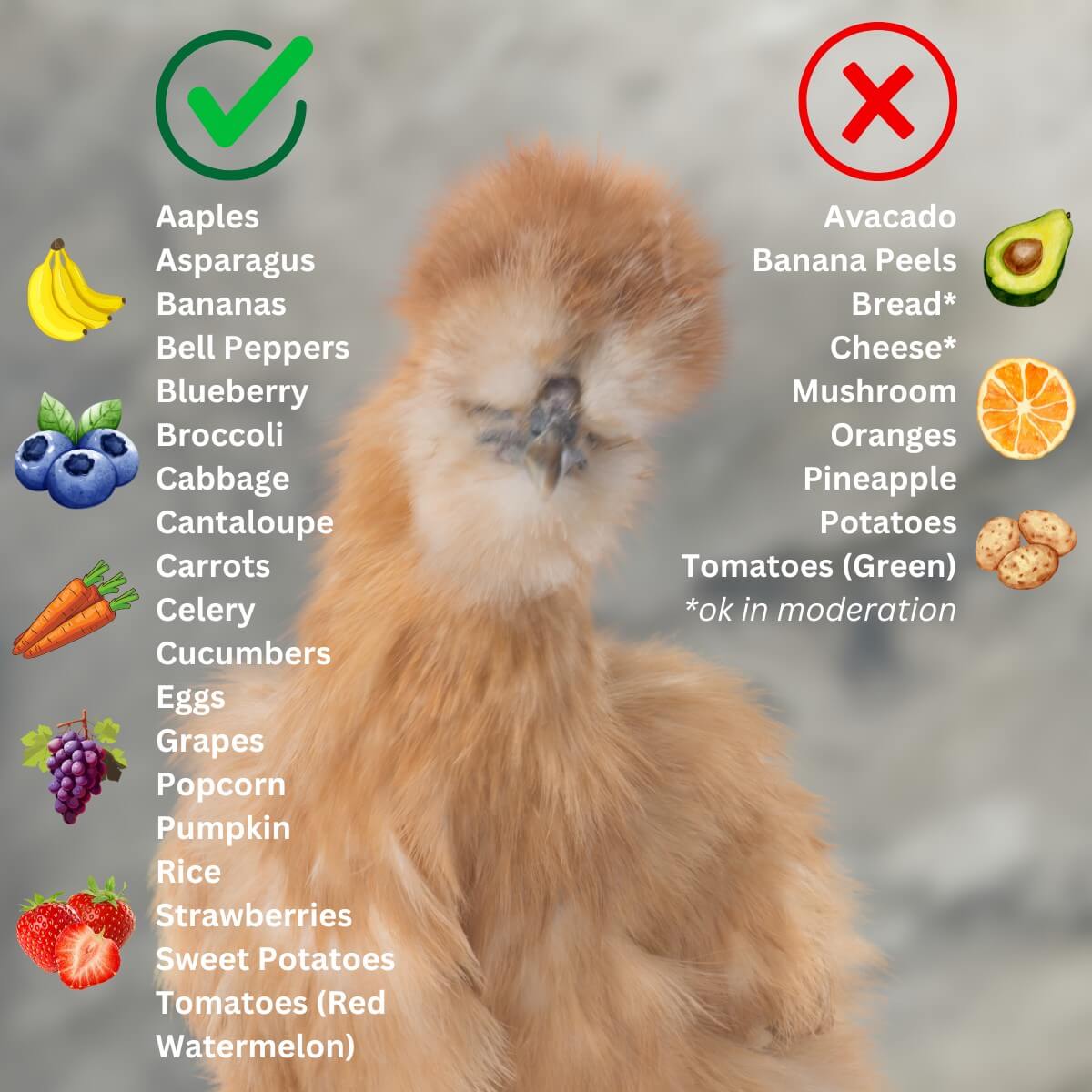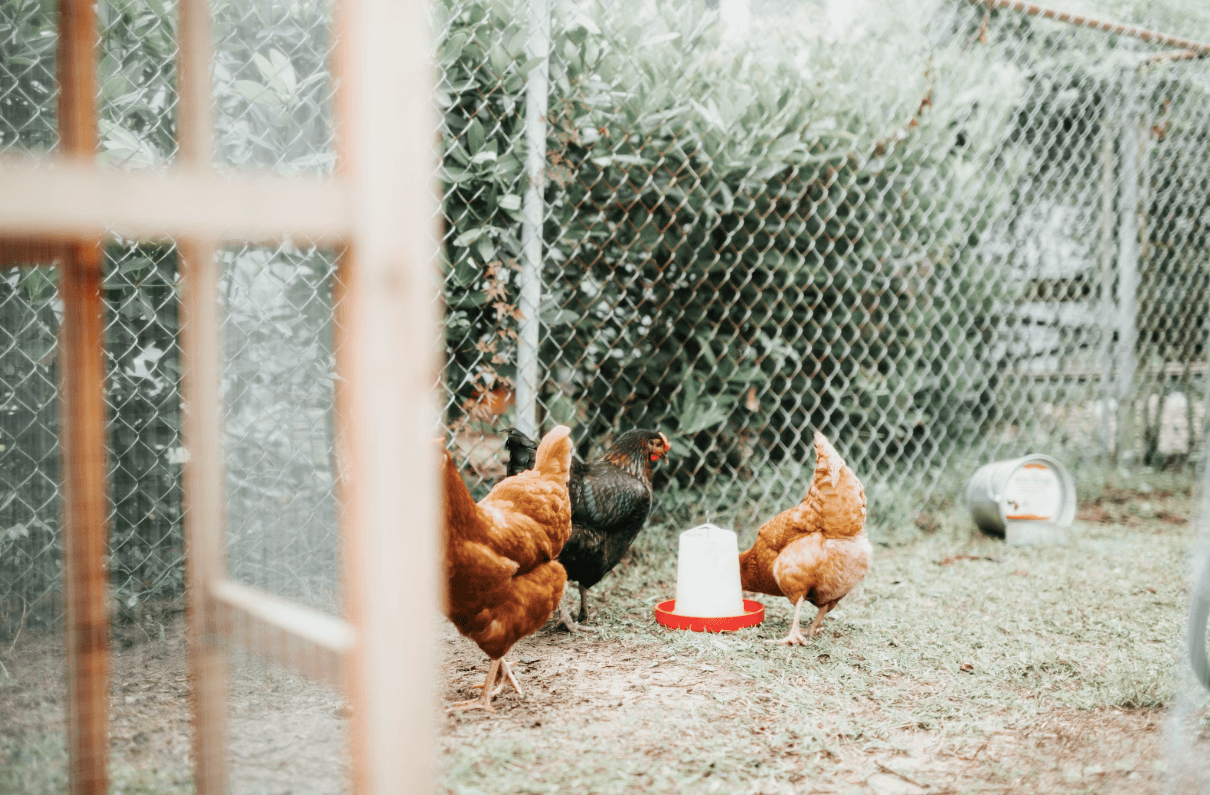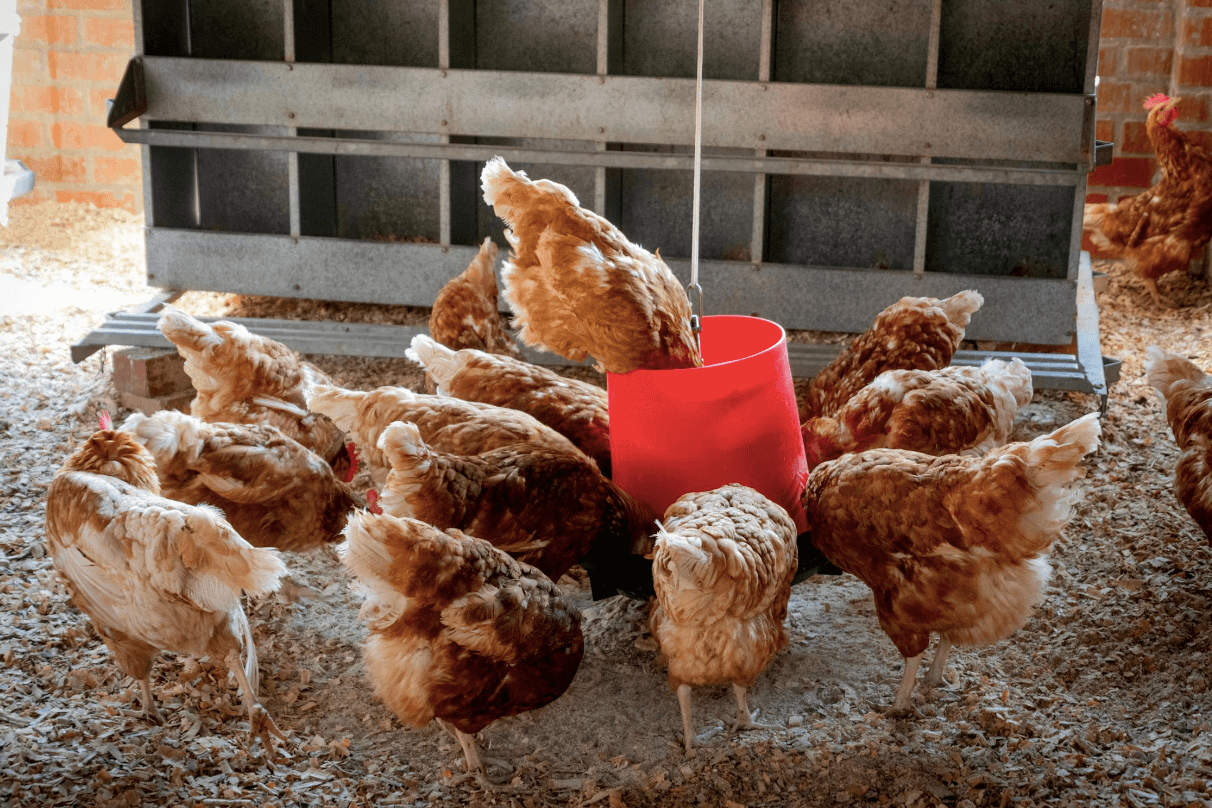So, can chickens eat raw meat? One thing’s for sure, they will—if you would allow them. As you probably know, chickens are omnivores (quite enthusiastic ones at that). When on their own, they’ll peck on anything they can get their beaks on—worms, bugs, ticks, snakes, and frogs (and the list goes on).
It’s a whole different story, though, whether you should keep meat on the menu, cooked or raw. Whether you’re a novice or an experienced chicken farmer, you may not be too happy giving your birds raw meat not wanting to risk making them sick. But still, you wonder whether this line of thinking is justified.
Prompted by the exact same reasoning, we decided to dive into the topic of 'Can chickens eat raw meat, including ground beef, hamburgers, chicken, pork, or steak'? So, let’s get into the meat of it, shall we?
Can I Feed Raw Meat to My Chickens?
Claiming that chickens are vegan or vegetarian is a widely spread misconception. These evolved “mini dinosaurs” can take an odd piece of meat here and there, though raw meat may not be an ideal type of feed to give to your flock regularly.
So, is it ok for chickens to eat meat? Absolutely. Meat sources are certainly where chickens got their protein from when they were freely roaming in the wild. Chickens are highly apt foragers and can even be considered scavengers as they won’t turn up their noses on a piece of carrion if they stumbled upon one in the wild.
So, yes, your chickens would eat raw meat if they lived in genuinely free-range conditions, quite enthusiastically so. Yet, raw meat can carry harmful bacteria and toxins such as Salmonella, Campylobacter, or Clostridium perfringens.
This is why for safety reasons you should consider cooking meat before feeding it to your chickens. Furthermore, if you do decide to treat your birds with an occasional meat morsel, but you’re still in doubt if raw meat is okay for chickens, just make sure you offer them some well-picked fresh pieces.
Is Meat Beneficial for Chickens?
Including meat in your chickens’ diet offers a host of benefits as it’s among the most essential dietary sources of energy needed for them to grow, develop feathers, and lay high-quality eggs.
Yet, while it’s not recommended to put your chickens on a plant-based diet only (though cereal grains make for a major energy source in most poultry diets), the reverse is also true. Your chickens need a variety of energy-dense foods high in carbohydrates, fat, and protein to obtain optimum growth and performance.
For more insight into the specifics check out the table below citing the nutritional guidelines taken from the 1994 Ninth Revised Edition of Nutrient Requirements of Poultry.
Click here to see the complete table.
Now, let’s get more granular. By and large, you’ll want meat in your poultry diet as it’s rich in both fat and protein. Your birds need these macronutrients to develop and grow, maintain their metabolism, and reproduce. Getting protein from meat sources is also critical for:
- Proper egg formation as well as egg-laying
- Growing their feathers back after a period of molting
- Catering to your chickens’ nutritional needs during winter (the high protein and fat content in meat energizes the metabolism, warming your chickens up when temperatures get low)
The Risks Of Feeding Raw Meat to Your Chickens
It’s wise to think twice before you let your chickens eat raw meat, including ground beef, hamburgers, chicken, pork, and steak as it comes with certain risks of foodborne illnesses—the most common of which are Norovirus, Salmonella, Listeria, and E.Coli.
And while it’s perfectly natural for your chickens to scratch and forage anything and everything and even peck at morsels straight from carcasses and bones, feeding carcasses to your flock goes against general recommendations as they can be the source of contamination—and this especially goes for Newcastle disease and Salmonella.
With Salmonella, in particular, alongside carcasses, there are other sources of transmission posing a risk of contaminating your flock and these include rats and mice, contaminated droppings as well as manure piles.
Importantly, having Salmonella spread among your flock is no small concern. Chicks under 3 weeks old are the most vulnerable, with experts reporting whopping mortality rates reaching up to 100% within the first 2–3 weeks of age. And it doesn’t stop at that.
Poultry contaminated with Salmonella can spread the infection to your human household members via contact with chicken feces, tasting undercooked chicken, or eating contaminated eggs.
Now get this. Salmonella is found in 8% of the chicken parts tested by the USDA and 25% of ground chicken which goes to show how common it is among the poultry population.
Everything being said, it makes sense to go easy on the raw meat in your poultry diet and to exercise some caution when meat’s on the menu (which brings us to our next section).
How to Avoid Food Poisoning Among Your Flock?
Feeding your chickens safely is one of the first steps you can take to prevent the spreading of food-borne illnesses among your precious flock.
Given that raw meat can be unsafe for your chooks, the easiest thing you can do is serve them cooked meat scraps (Salmonella dies at 145 degrees F). To go a step further and lower the chances of passing diseases in your coop even more, abstain from feeding your chickens raw eggs.
No less importantly, you can take other steps to prevent food-borne illnesses like Salmonellosis from occurring in your coop. We’ll try and analyze Salmonellosis transmission pathways so we can find adequate steps to prevent it.
According to the Poultry DVM website,
“Salmonella spp are both horizontally and vertically transmitted. They are spread through transovarian transmission from hens to their offspring, contamination of the environment (soil, bedding, perches, nesting boxes, eggs, waterers, drinkers, etc.), mechanically through flying and biting insects, rodents, wild birds, introduction of new flock members, equipment, vehicle tire tread, clothing, unwashed hands, etc.”
With that in mind, it’s only logical to exercise extra caution by:
- Not buying chicks from mail-order hatcheries or feed stores
- Preventing high rodent and insect populations
- Keeping high cleanliness standards in your coop (adult chickens are largely asymptomatic shedding the bacteria via their feces so careful waste management is mandatory)
FAQs
Can Chickens Eat Old Meat?
Avoid feeding your chickens old meat, especially uncooked meat. Feeding your chickens such meat after sitting at room temperature for longer periods can cause harm to your birds.
Importantly, remove any raw meat languishing on your chicken coop perimeter. Eating raw meat fresh is fine, but if your chickens leave it for later it’s wiser to remove it as it can see prolific bacteria growth and pose a health risk to your flock.
Importantly, most poultry farmers agree that feeding raw meat to your flock occasionally is fine, however, letting them feast on carrion is up for debate and as such is advisable to avoid.
Can Chickens Eat Ham?
Yes, you can toss an occasional ham treat to your feathered friends but don’t get too wild with it. It’s packed with sodium and can cause dehydration and other health problems. Along similar lines, steer clear from other processed meats like bacon, sausages, and hot dogs. Anything heavily salted and/or seasoned is not the smartest choice for your chooks.
Can Chickens Eating Raw Chicken and Meat Cause Cannibalism?
Opinions on this matter are divided, so you’ll have farmers expecting their birds to get more violent and carnivorous if they feed them raw, uncooked meat. However, most chicken farmers will tell you that cannibalism behavior among chickens is unrelated to what you’re feeding them.
They claim that you can even feed your flock chicken (they're that opinionated on the matter) without fear of cannibalism cropping up. Farmers who belong to this faction attribute cannibalism to the natural pecking order where you always have the lowest member of society that other chickens pick on.
If you want to be on the safe side, though, cook the meat before you serve it. Also, make sure your chickens are well fed, provide ample amount of floor space for them, and make sure they feel safe. This plays into lowering the chances of poultry cannibalism big time.
What Can My Chickens Eat Printable List
Click here for a printable list of what chickens can and can't eat. It covers all the food scraps that are fine for chickens to eat, plus those to avoid.
Over to You
To sum up, chickens are opportunistic omnivores. For those new to chicken rearing, you wouldn't believe what chickens can ingest (including frogs, insects, mice, and occasionally carrion) eventually turning it into precious eggs and meat. They’re not picky eaters, we’d tell you that.
That said, you’d want to keep them on a diverse rather than restricted diet, meat included (sometimes even raw). However, it’s best to err on the side of caution and protect your farm’s most avid eaters by cooking meat first. There’s less chance of passing diseases that way.
Want to stay updated on expert chicken farming advice? Check out our other articles on similar topics.





